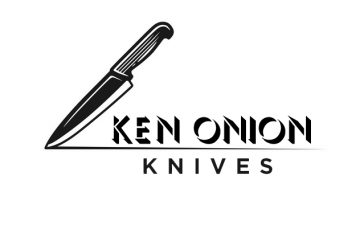
There are several different techniques that you can use to sharpen Damascus steel knives. Some of these methods include using a water stone, a jigsaw, a file, or a honing steel. However, before you begin to use any of these techniques, you’ll need to determine the materials that your knife is made of. This will help you choose the correct sharpening method for your specific type of blade.
Identifying the material
When you’re shopping for a Damascus steel knife, you’ll want to know how to identify it. Whether it’s a high-end knife or a low-cost option, there are many ways to find out which material it’s made from. There are also some tricks that will help you know whether it’s a fake or a real blade.
The first way to determine whether a knife is a real Damascus is to look at its structure. Many knives, especially modern ones, are constructed from multiple layers of steel, which can be seen and felt.
If you see any folds or lines, you can use them as a hint. A true Damascus steel knife will have a set pattern of folded and wavy lines, whereas a fake one will lack them.
The pattern can be seen on both sides of the knife. You can also test its authenticity by disassembling it.
You can also use the acid etching process to check the pattern on the blade. If it has been treated with acid, you can look for oxides on the blade.
Sharpening on water stones
If you own a Damascus steel knife, you might be wondering how to sharpen it. Fortunately, it’s not a complicated process. Sharpening your knife can extend its lifespan.
First, you need a sharpening stone. There are many different types of sharpening stones, including water stones and oil stones. Water stones are better for fine tuning blade edges. Oil stones are less abrasive and are often used with lubricant.
Before you begin sharpening your Damascus steel knife, you should clean the blade. This is important for two reasons. The first is that a dirty knife can be more dangerous to use. You also want to make sure there are no chips or scratches on the edge.
When you’re ready to begin, place your Damascus steel knife on the surface of your sharpening stone. The space between the back of your knife and the stone should be about 5 millimeters. Make sure that your hands are steady and don’t touch the cutting edge.
Cleaning
When you are purchasing Damascus steel knives, you should be aware of the various cleaning methods that will keep your blades in good condition. Whether you use your knives daily or you own a collection of high-end blades, you will want to take care of your knives so they can perform optimally.
For cleaning a Damascus steel knife, you need to rinse the blade thoroughly. You can use a mild detergent and a dish sponge. Rinsing the blade will remove oxidizing substances.
Another method to clean a Damascus steel knife is to apply a light coating of mineral oil. This will protect the blade and provide a nice luster. However, you should never use abrasive materials to clean your Damascus steel blade. This will damage the pattern and can leave spots and scratches on the blade.
Another method of cleaning a Damascus steel blade is by using a soft cloth. A microfiber or cotton cloth will not wear or scratch the blade.
Durability
When it comes to blades, it is important to consider the durability of the metal before you purchase. The type of material used to make the blade will affect its performance. You want to choose a high quality metal. A good metal is one that is strong, durable, and able to stand up to a lot of use.
Some of the best types of knives are made of carbon steel. These types of blades are known for their sharp edges and excellent edge retention. However, they also have a higher tendency to rust and corrode. They must be cleaned and sharpened regularly.
A Damascus steel knife has a wavy pattern and serrations. This makes it ideal for tasks like slicing meat and cutting bones. It is also great for concealing stains.
The chemical composition of Damascus steel has resulted in blades being exceptionally powerful. Because of this, many people have a misconception about the durability of Damascus steel.
